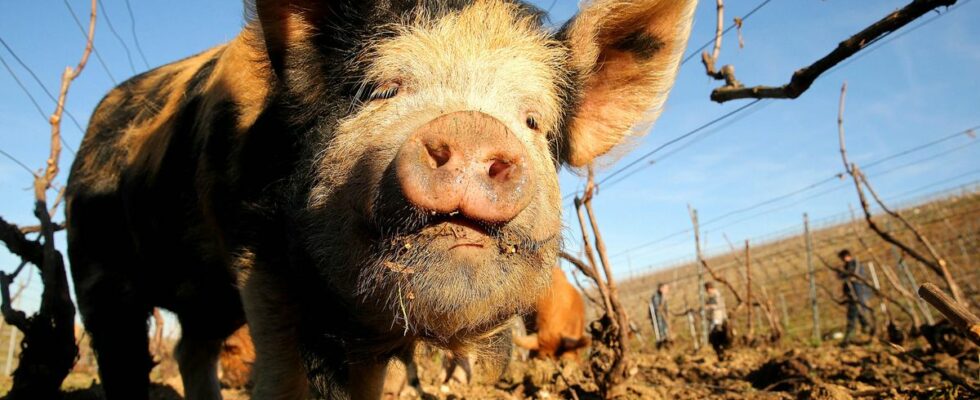They are all organic these little pigs! Short-legged, unable to lift their heads, they weigh, on average, 40 kg. Not enough to carve out a good ham then. However, several farmers and winegrowers are watching them closely, with a strange desire. That of letting them frolic in their vines… to clean up. Much better for the planet than phytosanitary products, these little pigs from New Zealand and called “kunekune” are real little cleaners.
Weeding, soil aeration, fight against mildew and other devastating fungi: these pigs do a “complete” and “precision” job, assures Olivier Zebic, agricultural engineer and viticultural consultant and oenologist. Four of them are currently plowing a vineyard in Cramant (Marne), a Champagne village classified as a grand cru. A mission to groom the vines with small onions as part of a pilot project aimed at limiting the use of herbicides and tractors. Much better eco-weeder than the sheep, which “only mows”, the Kunekune, bred in France, returns “all the clods of grass and even eats the taproots”, which “prevents regrowth”, details Olivier Zebic.
Significant reduction in phytosanitary products
Aute advantage and not the least, it is strictly herbivorous and therefore would also spare earthworms. And as their physiology prevents them from raising their heads, they do not attack clusters and twigs either. “They devour the leaves as soon as they fall to the ground”, an anti-fungus action. “It’s a solution to reduce very significantly”, the use of phytosanitary products, according to the agricultural engineer
The experiment has been carried out since January on the 22-hectare estate of Jean-Etienne Bonnaire, who runs the eponymous champagne house with his brother. The farm is in organic conversion, the herbicides replaced since 2005 by mechanical machines, but which compact the earth, can injure the plants, and run on diesel. “We won’t be able to revolutionize everything with pigs”, but they are a “complement”, “an additional tool for the most difficult plots”, judges Etienne Bonnaire. In particular “on hillside soils, where with storms, we lose four to five cm of soil per year”.
For now, the kunekune are busy on a single plot of Chardonnay, guarded and protected by an electric fence, under the eye of two surveillance cameras. The agronomist already imagines for his part a “transhumance of pigs” in the vineyards, while the Interprofessional Committee of Champagne wine aims, by 2030, an environmental certification for 100% of the operators.

